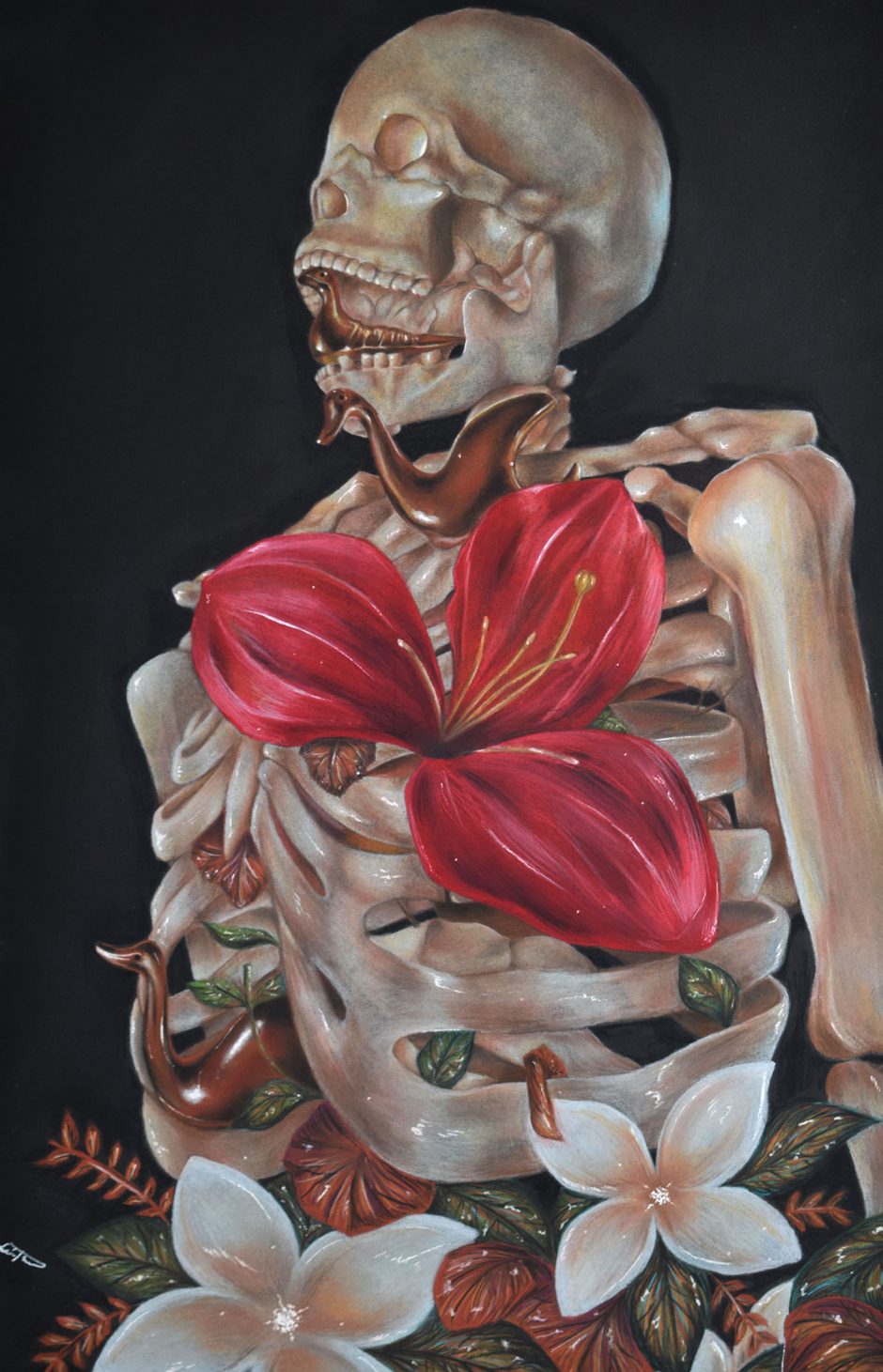Opulent, Taharah Islam
Step 1. Massage product into scalp and rinse thoroughly. Recall what she taught you about the Roman funeral: how it was the only time in antiquity that a woman would wear her hair down. How she would stand before the pyre and beat her chest, strands sticking to her sweaty shoulders, smoke stinging her Keep product out of eyes. Recall that Magistra just about always wore her hair this way. How most days it looked as though she had slept past her alarm and had had no choice but to forgo a good Brush if desired to control frizz. Every so often, though, she would come to class with a brand new look. Those days, her short brown hair was tame—sleek, even—and you could tell she was happy with herself from the way she kept touching it, stroking it down the side of her face, slowly, with a relaxed brow and flat palm. Contact with hands may cause unwanted breakage and grease.
Step 2. Dry well with clean cloth. Remember the time she unearthed white sheets from an overflowing closet and called for a toga party. You were fourteen, and for once you didn’t care how silly you looked, waltzing around the room with a train of cotton in tow. You and the others took pictures. You made crowns out of the ivy she plucked from her garden; you put them on and thanked Bacchus—son of Jupiter, god of celebration—for this much-needed break from the relative clause. Use microfiber for best results. She was not the best teacher. You knew this. Her lectures were much like the classroom closet: scattered. Jam-packed. All over the place. One minute, she’d be flailing her arms, screaming at you to find your seats—sedete, omnes, rapide!—and the next, her voice would be silky and smiling as she pretended not to be searching for her lesson plans. Her transitions were choppy; she held grudges, picked favorites; she publicly denounced other language teachers and the other languages themselves; and she assumed you understood all the material, scholars that you are, so questions about it made her squirrelly. But Magistra loved this work. If you let her, and you would, she’d go on and on about the seven hills of Rome, Saturnalia, Caesar and his speeches. And she loved you, her students. She would brag about you any chance she got. You are good kids, she would say, scratching her scalp. You are the reason I can’t retire.
Step 3. Turn on blow dryer and set to low heat. The day you heard, it was warm. High sixties, low seventies. Uncharacteristic for March. Not quite warm enough for shorts, but you could never help yourself when spring stopped by for a visit. You were sixteen. It was just a matter of days until the Ides, when Latin classes across the globe would recount Brutus’s famous betrayal. You were sitting at the vet with your dog, your eyes trained on your bare thighs. They looked freakish in the harsh light of the exam room. Much too pale. Your mom placed a hand on one knee. Cold. You hated the vet’s questions but ripped through them anyway: [This morning. Don’t know. Eighth and ninth grade. Latin. Yes. Good on tissues, thanks.] The vet lifted your dog’s hind leg. He let out a yelp. You shifted in your chair and straightened your back.
Step 4. Use flat iron to straighten. Recall bonding over scoliosis, and her insistence that you seek physical therapy before you end up an old hunchback like her. Caution! Heat may cause damage. Keep out of reach of children. But remember also the dream you had that April, when suddenly she sprang up and towered over you. You reached out your hand to touch her stomach, fleshy and swollen beneath a pretty purple blouse. The Roman color of luxury. You held your palm there and asked if it hurt. She smiled down at you and told you she never left.
Recall that she never did respond to questions like you had hoped. Though this was better, much better.
Step 5. Maintain with holding spray. Latin is not dead! she would cry whenever provoked. It is preserved. We are preserving it! Think of Vergil, classe: ‘And perhaps one day it will be pleasing to remember these things.’ Will you remember, classe? Will you?
Step 6. Repeat steps as needed. Pleasing.
About the Author
Kyra Lisse · Franklin & Marshall College
Kyra Lisse is a junior at Franklin & Marshall College in Lancaster, PA, where she studies creative writing with a minor in classics. When not writing or swimming in schoolwork, she enjoys reading, drawing, and listening to music. “How to Write About Your Dead Latin Teacher (in 6 Easy Steps)” first appeared in Collision Literary Magazine.
About the Artist
Taharah Islam · George Mason University
Taharah Islam is majoring in biology with a minor in psychology at George Mason University. She enjoys working with chalk pastel and oil-based colored pencil and is actively involved in The Memory Project, creating portraits for children in different countries. In 2017, she earned first place at the Virginia’s 11th District Congressional Art Competition. As an aspiring physician, her interest in the relationship between medicine and art inspired this piece, which first appeared in Volition.

No Comments